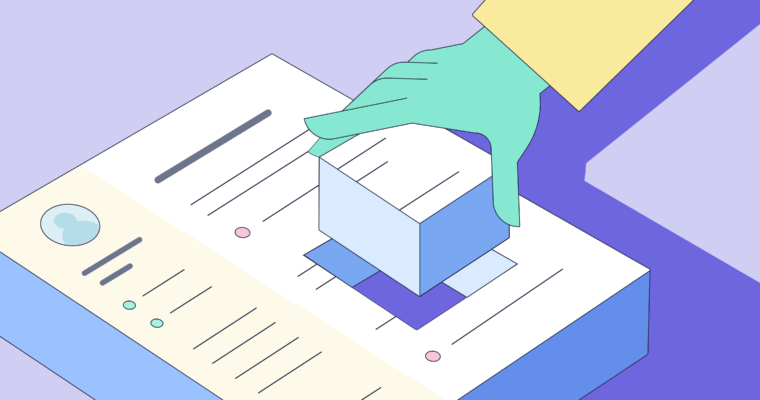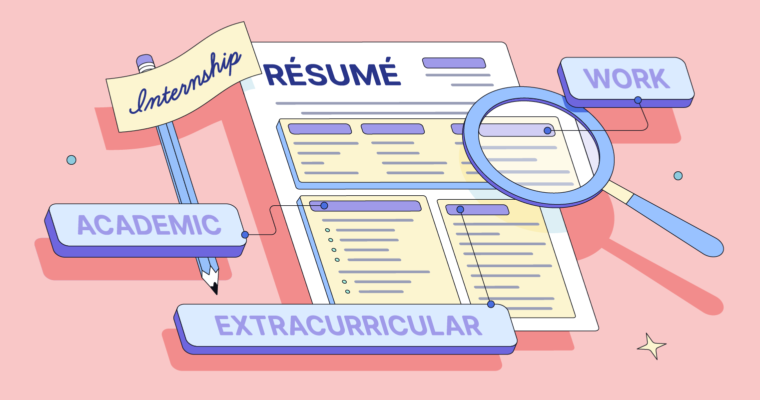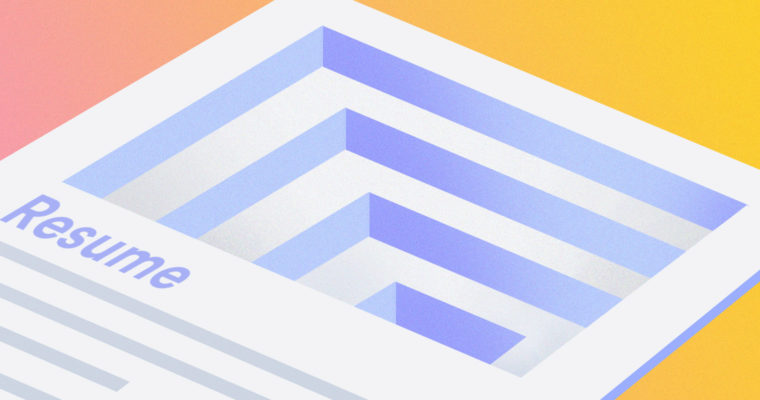
Your résumé is often a hiring manager’s first impression of you. They want to see that you’re reliable and have the experience and skills you’ll need to do the job. So if you have a résumé gap, which happens if you went without employment for a period of time, you might be worried that it will work against you during the hiring process.
The truth is that an employment gap can happen to anybody. In fact, 59% of Americans have experienced a gap at some point. There can be any number of reasons why this might happen, like taking time off to raise your kids, getting treatment for an illness, changing your career, or getting laid off in a tough economy.
These topics can be difficult to talk about, especially in an interview.
To help you navigate the conversation with confidence, here are key tactics for discussing a gap, regardless of the reason for it, as well as example responses and other useful interview tips to put into practice.
How to talk about COVID résumé gaps
Whether you got sick, had to take care of your kids after daycare closed, felt unsafe going to your in-person job, or working from home led you to rethink your lifestyle and join the Great Resignation, many people’s jobs were impacted by the pandemic. Plus, by October 2021, there were 4.2 million fewer jobs than there were in February 2020, around the onset of the pandemic, according to the Center on Budget and Policy Priorities.
In other words, you’re definitely not alone, and there may be a silver lining: According to LinkedIn, 79% of hiring managers would hire a candidate with a career gap on their résumé, so it seems the stigma associated with employment gaps is fading.
When it comes to discussing a COVID-related gap, it’s completely acceptable to say that the gap in your work history is a result of the pandemic. The key is to contextualize that detail with information that’s useful to an interviewer. In that way, it’s just like talking about any other résumé gap, and the tips below will help you understand how best to frame things.
How to talk about employment gaps
The key to talking about an employment gap is turning it into a positive. That may sound strange at first, but the idea is to use the résumé-gap question to transition into why you’re a great fit for the job. After all, that’s what an interview is meant to assess.
One important thing to note here: You should never feel pressured to go into personal details when explaining why you took time away from work. Instead, the goal is to show that a gap in employment doesn’t impact your qualifications to take on this particular role.
With that in mind, here are two tactics you should use when talking about an employment gap:
1 Focus on the qualifications that make you a good fit for the job
If you can find a way to relate your résumé gap to job-specific skills, you’re going to set yourself up to be in a better position during an interview. Here are some valuable skills that you could focus on:
- Detail-orientation
- Your ability to learn quickly
- Communication
- Problem-solving
- Organization
- Being a team player
- Adaptability
- Being a self-starter
- Resilience
Once you tie the skill to your employment gap, it’s time to tie that to the job you’re applying for. By following that conversational flow, you can redirect the focus to your future.
>>Read more: How to Customize Your Résumé for Different Jobs
2 Show that you’re ready to rejoin the workforce
Making the transition from unemployment to full-time work can be difficult, even if it’s what you want most, and during an interview, that can feel like a catch-22. You can ease interviewers’ minds by actively showing that you’re ready to make that change.
For example, if you took on part-time work or freelanced during your employment gap but didn’t include that on your résumé, you might talk about that experience and how it acts as a stepping stone for your career. If you took a course or earned a certificate in your field, those can be signals that you have been actively pursuing a position like the one you’re applying for. Talking about the soft skills you’ve gained during your time away from work can also contribute to your readiness to start working again.
>>Read more: How Far Back Should Your Résumé Go?
On the flipside, talking about an employment gap in purely negative terms can count as a strike against you. That isn’t to say you have to pretend to be happy about a layoff or getting sick, but it’s important to keep the primary focus of your answer on your qualifications.
6 examples of skillful résumé-gap responses
1 You had COVID-19: Unfortunately, I got COVID during the first wave. It took a while to recover, but now that I’m ready to return to work, I’ve been focused on finding a company that values X. [Company name] caught my eye when I learned that Y.
2 You changed your career: After [reason/event], I discovered I wanted to change my career path. I knew that was going to require X, so I took time away from work to build my knowledge of the industry and upskill by reading Y and doing Z.
3 You needed a break: I took time away from work from [year to year]. In anticipation of my return to the workforce, I’ve done X, Y, and Z.
4 You took time off as a parent: I was focused on raising my kid during that time. It’s definitely an experience that will teach you how to multitask like a pro while keeping an eye on the details. Now that they’ve gone back to school/graduated, I’m excited to return to X job/industry.
5 You were laid off: After working at [company name], I spent time learning [new skill]. For example, I took [course] and earned my X certificate.
6 You had family obligations: There was a family situation that required my full attention during that time. Although I wasn’t able to work, I did keep up with X industry through Y and Z.
When in doubt, stick to interviewing classics
Regardless of whether you have gaps in your work history, everyone can benefit from these tried-and-true interviewing tips:
- Research the employer to prepare: The more you know about a company’s mission and approach to work, the better equipped you’ll be for the interview.
- Prepare answers to common questions: Just because a question is common doesn’t mean it’s easy to answer on the fly. (See: Why do you want to work here? and What would you say is your biggest weakness?)
- Make sure your cover letter and résumé are mistake-free: You have only so much time and real estate to make the case for why you should get the job, so typos can stick out and hurt your chances. Speed up your résumé writing process with Grammarly’s AI résumé objective generator, which helps you create a well-written objective for your résumé in two easy steps.
- Get there on time: Punctuality is critical. It shows you’re taking the opportunity and company seriously. Be sure to allow time for transportation or tech issues.
- Practice active listening skills: When you really listen, you’ll be able to find opportunities to showcase your skills, preparation, and interest in the job.
- Make sure the skills you highlight are relevant: Delegation is a useful management skill, but if you’re applying for an entry-level job, it may not be applicable.
- Have a list of questions for your interviewer: This is another opportunity to show that you’ve prepared for the interview, and it gives you the opportunity to evaluate whether the employer suits your needs.
- Follow up post-interview with a thank-you note: It’s a small gesture, but it’s an opportunity to reiterate your interest and remind the interviewer why you’re a great fit for the job.






